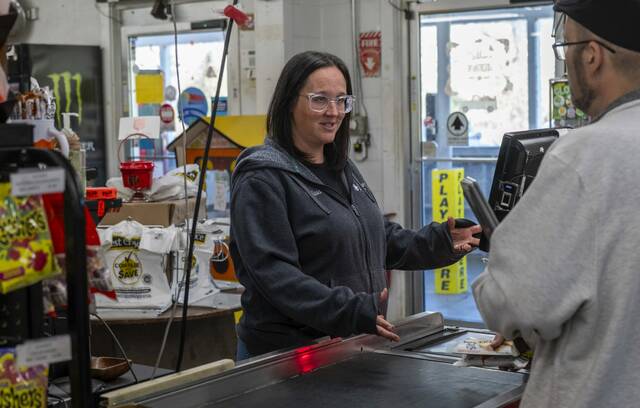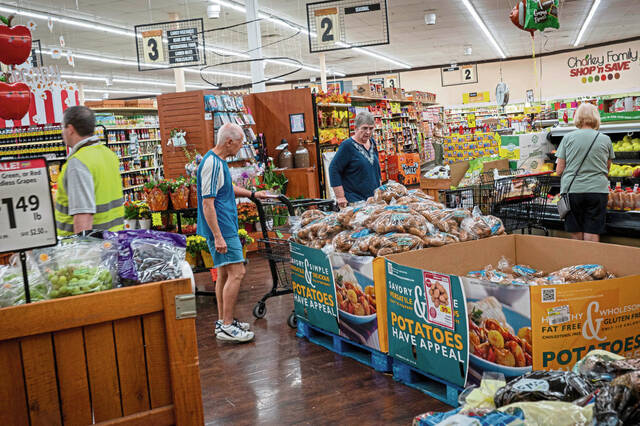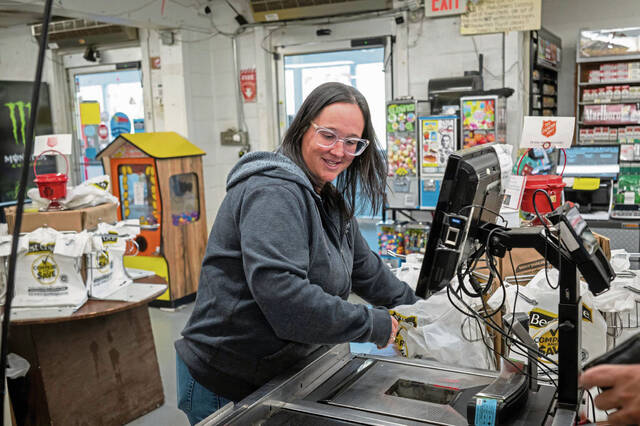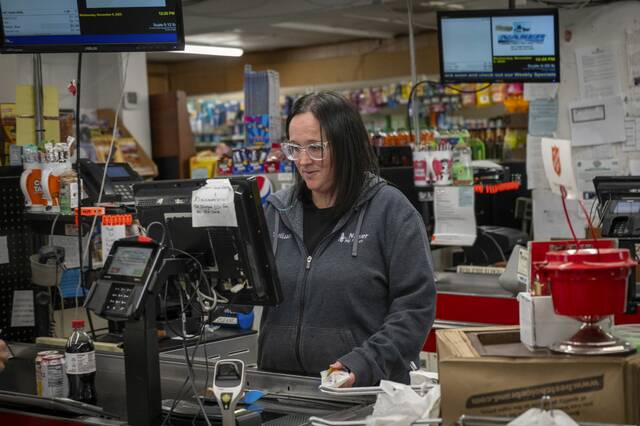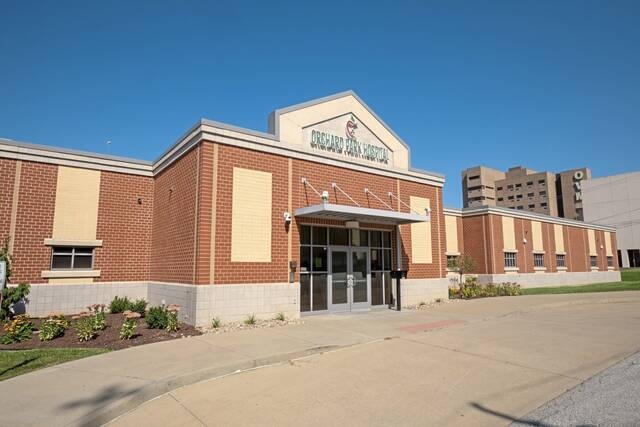Grocers who rely on sales from customers using federal food assistance are bracing for financial pain that could amount to millions of dollars in losses.
Nationwide, the Supplemental Nutrition Assistance Program (SNAP) serves an average of almost 42 million participants per month who spend almost $100 billion per year on food items. In Pennsylvania, between 14% and 16% of the population relies on SNAP benefits, according to the U.S. Department of Agriculture.
With SNAP payments delayed because of the ongoing government shutdown, and only partial payments eventually on their way, grocers are wondering how they’ll cope financially.
“There’s not room for error in the small-business world,” said Gene Tommasi, co-owner of Golden Dawn Supermarket in New Kensington.
Tom Charley, whose family owns two Shop ’n Save stores in Greensburg and another in Murrysville, said for now his family’s stores will operate as usual, but if payments are continually delayed, he could be left with “hard decisions.”
That includes cutting employee hours or ordering smaller deliveries, he said.
About 10% of sales at the three stores comes from SNAP payments each month, he said.
The entire situation is “completely unacceptable” for the community and his shoppers, Charley said.
“It’s causing a lot of anxiety,” he said.
USDA officials last month announced the government would not fund SNAP because of the government shutdown. That sent recipients and food banks scrambling.
Federal judges ordered the government to use contingency funds to keep the program afloat, and USDA officials said Monday they would release about half of the money normally spent on the program.
The rollout process for the funds, however, remains hazy. A USDA official said some states would need weeks or even months to make system changes that would allow them to provide the reduced benefits. The lack of clarity means grocers don’t know how long a gap in funding will last or how much less their SNAP customers will have to spend.
In a business that already operates on slim margins, losing SNAP dollars would only make things worse for the business and its shoppers, Charley said.
In fiscal year 2024, about 9% of all grocery purchases nationally were paid for with SNAP money, according to the USDA.
Tommasi said there’s not much he can do to make up for the loss of SNAP dollars other than offer low prices.
“SNAP is very important to the little mom-and-pops and the big chains,” he said.
A significant amount of the grocery store’s revenue comes from SNAP users, meaning the retailer could see a significant drop-off in sales if benefits aren’t delivered soon.
Tommasi said he doesn’t understand why political battles can’t be waged after the program has been funded. In the meantime, he said, consumers will likely suffer, and small businesses could be left “crippled.”
George Sears, general manager of Community Supermarket, said a “good percentage” of the chain’s sales come from SNAP dollars.
The company operates stores in Penn Hills, Lower Burrell and Pittsburgh’s Bloomfield neighborhood. It closed its Harrison location last month.
Without a clear timeline for potential benefit deliveries, Sears said, there’s not much the company can do.
“We’re bracing for a decline in sales,” he said.
Naser Foods, which has stores in Oklahoma Borough and Unity, has “quite a few people who rely on the SNAP,” according to Bill Naser, store owner. He said he’s expecting “major impacts” on business.
For example, 21 customers on Sunday purchased groceries with SNAP benefits at the Oklahoma Borough store, he said. That was about 40% fewer customers than the previous week.
SNAP recipients still would have had some of their allotment of money from October to use in early November, Naser said.
Jim Wholey, owner of Wholey’s market in the Strip District, also said a significant portion of his business comes from SNAP. For now, he’s trying to figure out ways for customers to stretch their dollars, including stocking more “value” packages.
“A lot of people depend on us,” Wholey said.


